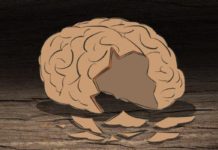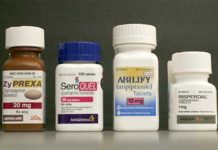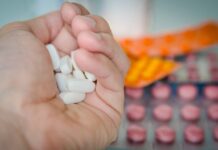Rethinking Madness and Medication: Researcher Discusses Psychiatric Drug Withdrawal and Survivor Movements
New understandings of medication and withdrawal experiences warrant rethinking conceptualizations of health and “madness."
Patient Reports Reveal SSRI Antidepressants Often Lead to Emotional Blunting
According to patient reports, SSRI antidepressants most frequently lead to the subjective experience of emotional blunting.
Having Abortion Does Not Increase Risk of Developing Mental Disorder
A new study conducted in the Netherlands, published in the Journal of Psychiatric Research, investigates the effect of terminating an unwanted pregnancy on the...
Experts Question the Benefits of Brain Imaging Research for OCD
Two experts—a leading neuroscientist studying OCD, and a psychiatrist specializing in OCD treatment—question whether expensive brain imaging research has added anything to the treatment of OCD.
Very Slow Taper Best for Antipsychotic Discontinuation
An article in JAMA Psychiatry advises very slow tapering for best results when discontinuing antipsychotic drugs.
Rigorous Study Finds Antidepressants Worsen Long-Term Outcomes
A new study conducted by Jeffrey Vittengl at Truman University has found that taking antidepressant medications resulted in more severe depression symptoms after nine years.
How Does the Soteria House Heal?
The alternative treatment model of Soteria helps individuals suffering from schizophrenia without relying on medication or coercion.
Largest Meta-Analysis of Antidepressants Finds Doubled Risk of Suicide in Youth
The largest-ever meta-analysis of antidepressant trials appeared yesterday in the British Medical Journal. Researchers from the Cochrane Collaboration reviewed 70 trials (involving 18,526 subjects), to find that - counter to the initially-reported findings - antidepressants doubled the risk of suicide and aggression in subjects under 18. This risk had been misrepresented in the original study reports, the authors say, and suggest that the risks to adults may be similarly under-reported.
Pets More Effective for Grief Support than Humans, Study Finds
A new study explores effective forms of grief support, finding that animals are more effective than humans in providing support.
Social Support Improves Antipsychotic Discontinuation, Study Finds
A new study explores how people manage to discontinue antipsychotic medication and examines how social supports may improve outcomes.
Positive Antidepressant Study “Misleading” and “Erroneous”
An analysis of last year’s positive finding in The Lancet about antidepressant efficacy shows errors, obfuscations, and misrepresentations.
D-Cycloserine Supplement Does Not Add Much to Exposure Therapy
A closer look at a new study reporting that the supplement D-cycloserine improved anxiety when used with exposure therapy.
Placebo Effect—Not Antidepressants—Responsible for Depression Improvement
In adolescent depression treatment, those who received a placebo but thought they received Prozac improved more than those who received the drug and knew it.
Psychiatric Journals’ Pro-Pharma Publication Bias Hides Suicide Risk of Antidepressants
Selective publication bias in top psychiatry journals was not explained by the quality of the studies, but by financial ties to pharma.
Continuity of Social Groups Helps Prevent Postpartum Depression
Mothers’ loss of group membership impacts their social identity and linked to postpartum depression.
Mad Science, Psychiatric Coercion and the Therapeutic State: An Interview with Dr. David Cohen
MIA's Peter Simons interviews David Cohen, PhD, on his path to researching mental health, coercive practices, and discontinuation from psychiatric drugs.
Sudden Antipsychotic Withdrawal—Not Low Dose—Leads to Relapse
A new article in Lancet Psychiatry debunks past studies claiming that those on low doses of antipsychotics are more likely to relapse.
Study Examines Voice Hearing Accounts of 499 Nonclinical Individuals
Researchers look at voice hearing experiences shared by nonclinical samples, exploring these experiences in the general population.
For People “At Risk for Psychosis,” Antipsychotics Associated with Worse Outcomes
Researchers studied whether antipsychotics could prevent transition to full psychosis and found that the drugs worsened outcomes.
When Psychiatric Medications Cause Psychiatric Symptoms
Dr. Yolande Lucire, a psychiatrist from Australia, recently published a paper about the iatrogenic effects of psychiatric drugs.
New Study Examines Successful Discontinuation of Antipsychotics
A new study to be published in the next issue of Schizophrenia Research examines patients suffering from a first-episode of psychosis who stop taking any antipsychotic drugs. The researchers attempt to identify variables that can serve as predictors of the successful discontinuation of antipsychotics. They find, for example, that those who discontinue the drugs have, on average, the same outcomes as those who stay on them, and that those who have better social integration are more likely to discontinue without relapse.
Light Therapy Outperforms Prozac for Depression
In a new study, researchers found that bright light therapy was an effective treatment for nonseasonal major depressive disorder (MDD) while Prozac (Fluoxetine) alone...
Antidepressants Not Superior to Psychotherapy for Severe Depression
On Wednesday, JAMA Psychiatry released a meta-analysis comparing the results of cognitive-behavioral therapy and antidepressant medication in severely depressed populations. Currently, many practice guidelines suggest that antidepressants be used over psychotherapy for major depressive disorder. The analysis, however, found that “patients with more severe depression were no more likely to require medications to improve than patients with less severe depression.”
Antipsychotics Lead to Worse Outcomes in First-Episode Psychosis
Those who did not get antipsychotics in the first month were almost twice as likely to be in recovery after five years.
Ethical Issues Raised Over FDA Collaboration with Biogen on Failed Drug
The FDA collaborated with Biogen to conduct repeated re-analyses of aducanumab for Alzheimer's and FDA committee members are raising concerns.































